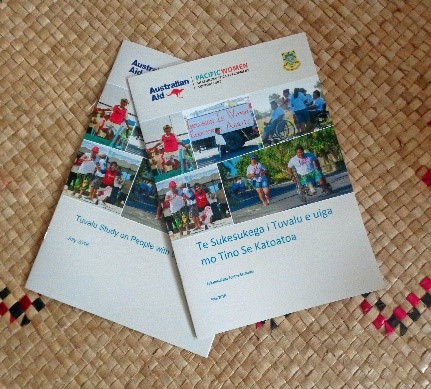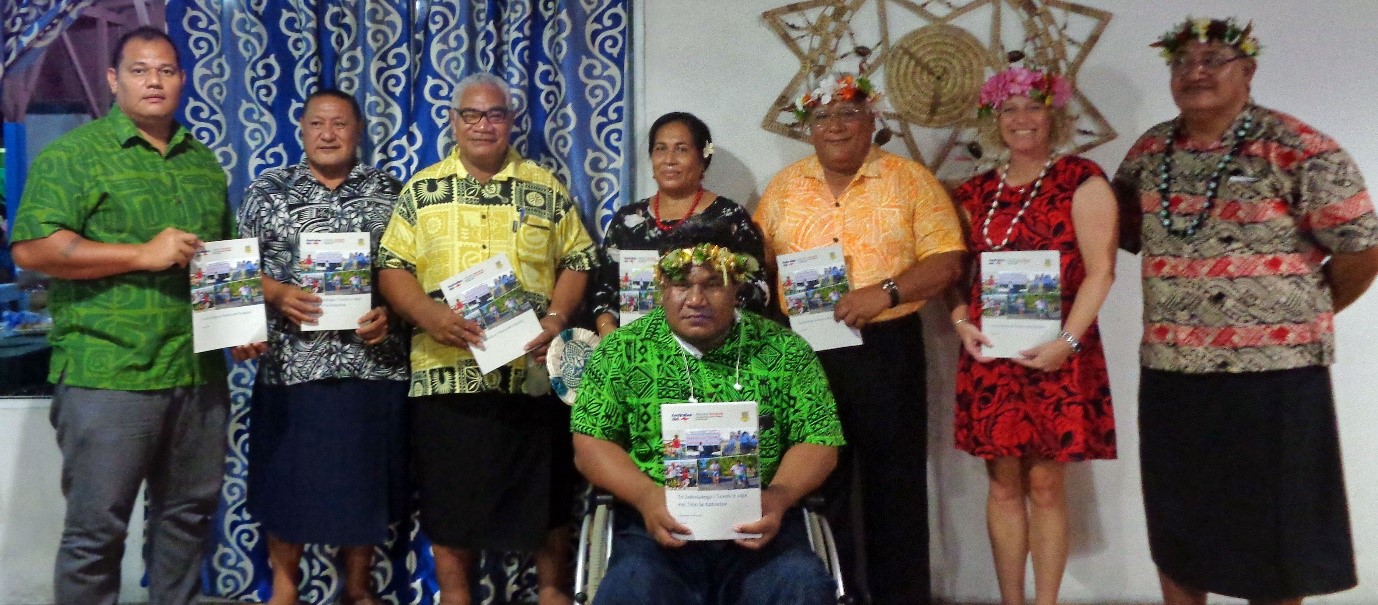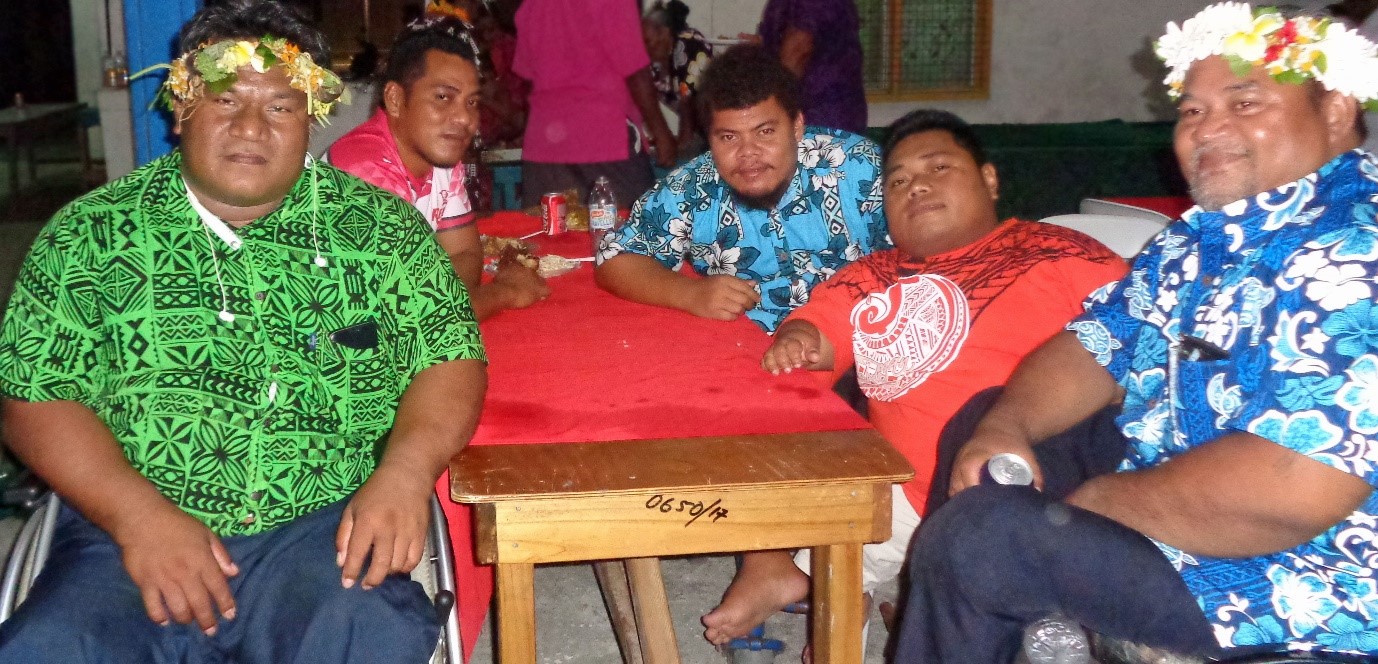Australia’s bilateral aid program in Tuvalu
Australia has a longstanding relationship with Tuvalu based on shared development and security goals. Australia is committed to strengthening Tuvalu's economic and environmental resilience development through our aid program
Australia and Tuvalu’s shared vision for development cooperation is set out in the Australia-Tuvalu Aid Partnership Arrangement 2017-2020.
The objectives of Australia’s aid program in Tuvalu are set out in the Aid Investment Plan Tuvalu 2015-2019. Australia’s aid to Tuvalu is organised under three strategic priorities: good governance, economic growth and stability; education and human resources; and environment and climate change.
Supporting Tuvaluans to study in Australia is an important part of the aid program. In 2017, Australia provided 15 Australia Awards university scholarships to Tuvaluans to study in Australia and the region.
Click here for more information on Australia’s aid program in Tuvalu.
Tuvalu also benefits from funding and activities under Australia’s Pacific regional aid program.
Tuvalu launches first comprehensive study on persons with a disability
Demonstrating its commitment to ‘leave no one behind’, the Government of Tuvalu has completed and launched the country’s first comprehensive national study on persons with a disability.
The study, supported by the Australian Government’s bilateral program for Tuvalu through Pacific Women Shaping Pacific Development (Pacific Women), was a collaborative effort between the Ministry of Home Affairs, the Gender Affairs Department of the Office of the Prime Minister and the Fusi Alofa Association (Tuvalu’s non-government organisation for people with disabilities). It demonstrates the commitment of the Government of Tuvalu, civil society organisations and the Australian Government to progress efforts on the ratification of the Convention on the Rights of Persons with Disabilities, signed in 2012:
 It is vital to support and uphold the rights of all groups in the society,’ said Honourable Namoliki Sualiki Neemia, Minister of Home Affairs and Rural Development. ‘The study is crucial as it will be one of the main guiding documents for our Ministry to inform and assist us in our everyday work. We acknowledge the hurdles and challenges faced by persons living with disabilities in managing their daily lives, in accessing services and participating in social and public life. Everyone has talents and abilities to contribute to the development of our nation. Let’s all get together on the canoe, paddle and sail together.’
It is vital to support and uphold the rights of all groups in the society,’ said Honourable Namoliki Sualiki Neemia, Minister of Home Affairs and Rural Development. ‘The study is crucial as it will be one of the main guiding documents for our Ministry to inform and assist us in our everyday work. We acknowledge the hurdles and challenges faced by persons living with disabilities in managing their daily lives, in accessing services and participating in social and public life. Everyone has talents and abilities to contribute to the development of our nation. Let’s all get together on the canoe, paddle and sail together.’
‘The launch of the Disability Study is a stepping stone for Fusi Alofa Association and its members and it highlights the need to urgently provide for the needs of people with disabilities in Tuvalu,’ said Mr Melton Paka Tauetia, General Manager of Fusi Alofa Association.
The report was launched by Honourable Neemia, with formalities including speeches from Mr Tauetia of Fusi Alofa Association and Ms Christina Munzer of Australia’s Department of Foreign Affairs and Trade (DFAT).

Photo caption: Back row - left to right: Hon Mackenzie Kiritome (Acting Minister of Foreign Affairs Trade, Tourism, Environment and Labour); Hon Isaia Taape (Member of Parliament); Hon Namoliki Sualiki Nemia (Minister of Home Affairs and Rural Development); Hon Maatia Toafa (Deputy Prime Minister and Minister of Finance and Economic Development); Ms Christina Munzer (DFAT Counsellor, Development Cooperation); and Hon Monise Laafai (Minister of Transports and Communications). Front row: Mr Taupaka Uatea, President of the Fusi Alofa Association. Photo credit: Pacific Women Support Unit.
‘The Australian Government values social inclusion in all of its development programming and the study we are launching tonight is a stepping stone towards ensuring a more inclusive society for current and future generations in Tuvalu,’ said Ms Munzer, Development Counsellor with the Australian High Commission in Suva, Fiji. ‘We all have a key role to play in ensuring that none of our brothers and sisters get left behind and that we value their active participation in family life, in schools, at work and in nation building.’
The launch also featured members of the Fusi Alofa Association performing humorous skits that focused on the topics of accessibility and people with disabilities having families.
As a testament to inclusion, the study engaged people with disabilities as fieldworkers and research assistants. One fieldworker was Mr Taupaka Uatea, an active member of Fusi Alofa Association. Following the completion of the study last year, Mr Uatea shared that while mobility was an initial challenge, there were no barriers between him and the work of the research:
‘I could ask questions and communicate with people with disabilities like any other fieldworker. I guess my personal disability helped me a lot to win the trust of other people with disabilities.’

Field workers interviewed 466 persons with a disability living in the country. Almost half said that their disability prevented them from participating in family and community events, largely due to physical barriers. Health facilities were inaccessible to around half of the participants and stigma, discrimination and abuse were experienced by many people with disabilities and were noted to have a strong impact on their lives. Furthermore, women with disabilities are also twice as likely to live in hardship compared to men with disabilities. It was also emphasised that women also carry the majority of the burden as caregivers:
‘I know that women and children with disabilities are more disadvantaged, but it was good to get actual numbers and gender analysis from the study,’ reflected Mr Uatea in 2017. ‘The abuse cases against women with disabilities were shocking to me. There are no activities in the past that I know of which targeted women with disabilities. I think the study will guide Fusi Alofa to do more for women with disabilities. Gender and disability should be a focus in the future and we could do more activities.’
The Gender Affairs Department have also used the study to inform the integration of disability into their work. The findings are also providing the basis of recommendations to enhance social protection for the wider community. The Government of Tuvalu has used the study to develop the first policy on disability as well as the first national policy on hardship.
